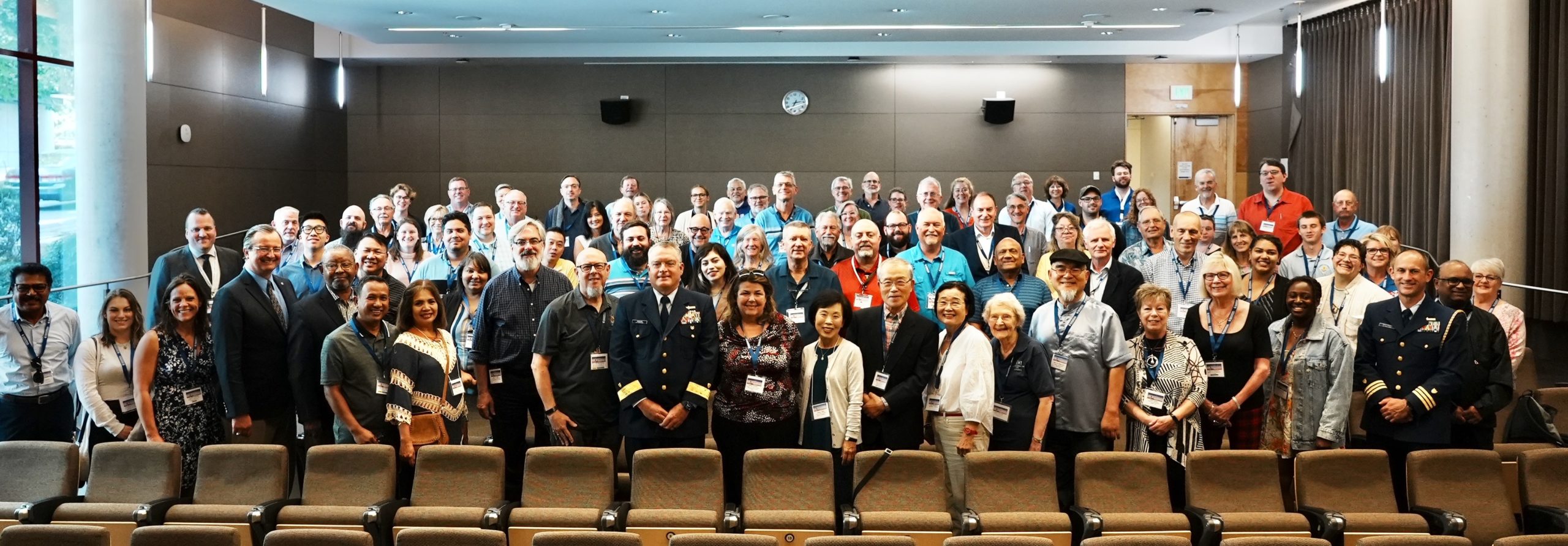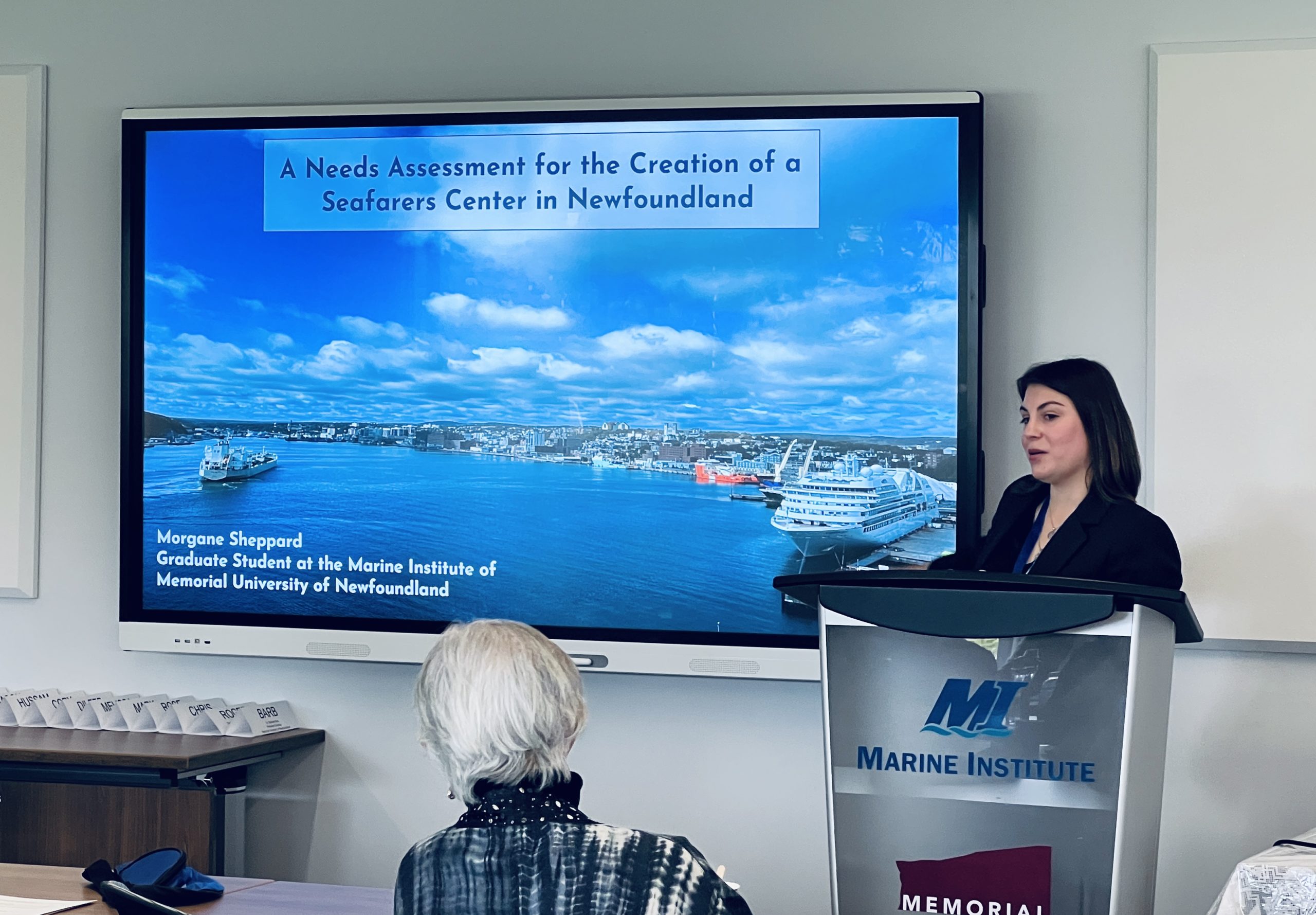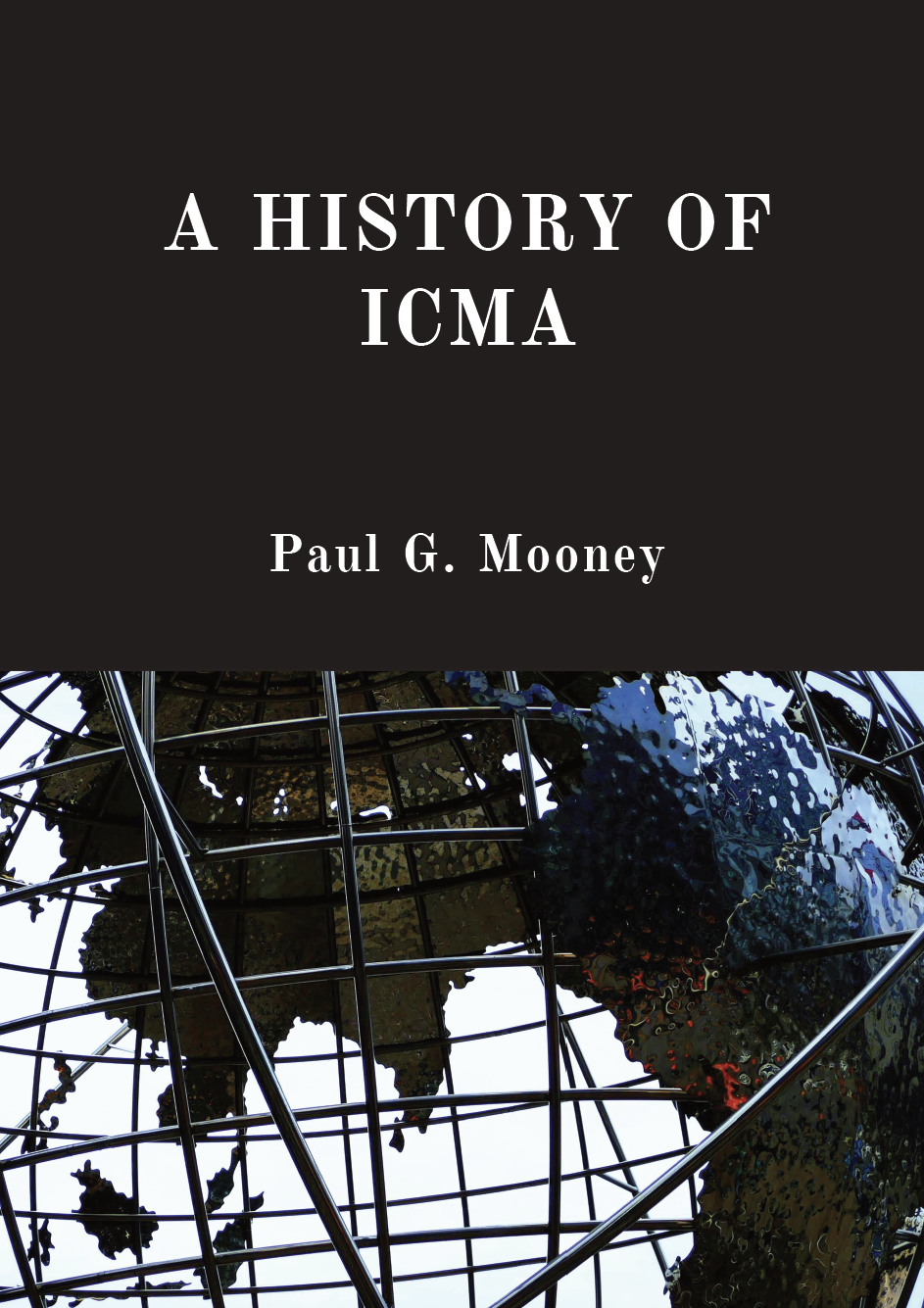by Susan Huppert and Jason Zuidema, NAMMA
The North American Maritime Ministry Association (NAMMA) Conference 2023 brought a common vision and long-term commitment together. Chaplains, directors, ship visitors, and volunteers gathered around the theme of “Ready for the Future of Seafarers’ Welfare.” The conference, held on the campus of the University of Washington, Seattle, helped participants focus on their future.
A healthy exchange between the novice and the seasoned ran throughout the three-day event designed to help all continue in the isolated, but important work of caring for those who work at sea.
Dcn.Paul Rosenblum, NAMMA president and Stella Maris North America and Caribbean Regional Director introduced the 3-day conference by welcoming members and beginning to explore this year’s theme.
Rosenblum explained his vision for the conference. “We are thinking along the lines of how maritime is changing,” said Rosenblum. “We need to be forward-thinking.”
Rosenblum shared that organizations ought to strive to have the most capable people doing this important work and a strong base of support going forward. Rosenblum shared that this conference helps NAMMA listen to the needs of its members. “We need to maintain the communication we have,” he said. “We cannot lose that.”
Sara Baade, CEO of the Sailors’ Society shared her extensive experience in leading an international welfare charity and as the current chairperson of the International Christian Maritime Association. Baade addressed how those serving seafarers can be ready for the future of the ever-changing reality of international seafarers’ welfare.
To be prepared for the future of seafarers’ welfare, the conference offered speakers from various sectors of the maritime industry including a video message from Admiral Steven D. Poulin, Vice Commandant in the United States Coast Guard and words of encouragement from Rear Admiral Wayne R. Arguin, Jr.
Often in seafarers’ welfare, legal concerns surface. NAMMA welcomed conference speaker Phil Schifflin, Director of the Seamen’s Church Institute, Center for Mariner Advocacy. Schifflin explained the center’s role as a legal resource and source of advocacy for seafarers and the ministries that serve them.
Local insight was gained from Patrick Gallagher, Executive Director of the Marine Exchange of Puget Sound and John Wolfe, CEO of The NorthWest Seaport Alliance.
In a video message, president and CEO of Armada Risk Partners, a Cleveland-based insurance brokerage, Edward X. McNamara reminded Conference participants that “maritime does not exist without seafarers…we have a duty to show we care for them.”
A high point of the conference was a session on the future of staff and volunteers with presentations of Erica Cohen Moore, Erin Burnett and Jeni Brett. Burnett’s presentation based on her University of Glasgow master’s thesis on the experience of women chaplains was especially poignant and rich for discussion.
Examining the role of centers in the various missions is an additional point of readiness. Presenters addressed the roles their centers play in the current and future welfare of seafarers. Pastor Marsh Drege, from Seafarers International House promoted flexibility as seafarers’ needs change, centers need to be prepared.
Woven throughout the conference were individual meetings with Jennifer Koenig, Director of Development with NAMMA. Koenig has worked in the non-profit sector for more than 25 years and provided personalized advice for each participant with whom she had a meeting.
The conference had a number of speakers that gave an international perspective. Abdulgani Serang of the ITF Seafarers’ Trust, Dave Watkins of CHIRP Maritime, and René Anderson of Sea, Health and Welfare all shared how their organizations were responding to the continued challenges of seafarers’ well-being and safety.
Simon Grainge, Executive Director of ISWAN presented his observations about preparedness for future changes in the outreach to seafarers and their families. He reported that crisis lines and crisis funds for seafarers and families such as SeafarersHelp, a free and confidential phone/internet line which addresses a range of needs seafarers face has seen a significant increase in use. “Partnerships are important,” he said.
NAMMA offered experts in the fields of best practices for the use of digital tools and holistic approaches to maritime ministry. With maritime courses in seafarers’ welfare, NAMMA is focused on well-prepared workers with quality training on the life of seafarers, the purpose of centers, and a clear understanding of their respective roles. Technology has changed the way we function. Chaplains, directors and other workers need to be further prepared for unplanned challenges that are ahead. The purpose has not changed, but the platforms might.
Chaplain Michelle DePooter of the Montreal Ministry to Seafarers and Vice President of the NAMMA board chaired the opening session of the final day of the conference. She described one particular issue that organizations should continue to have in focus: “We want to help organizations by looking at succession planning.”
DePooter remarked, “The benefit of this conference is being able to hear from other people; professionals in the industry for help to grow and improve. The world is changing very fast. We need to intentionally look toward the future and prepare for it.”
Photo and Video: Noah Leon, Moosefuel Media





